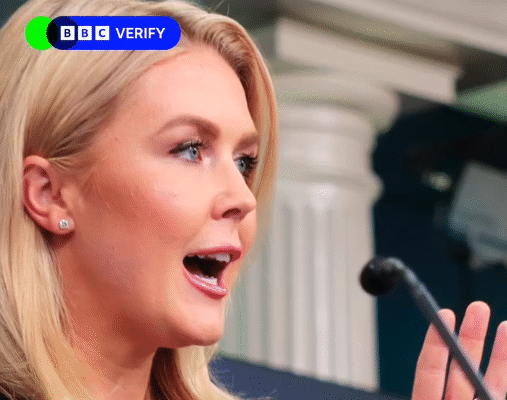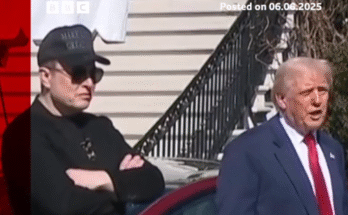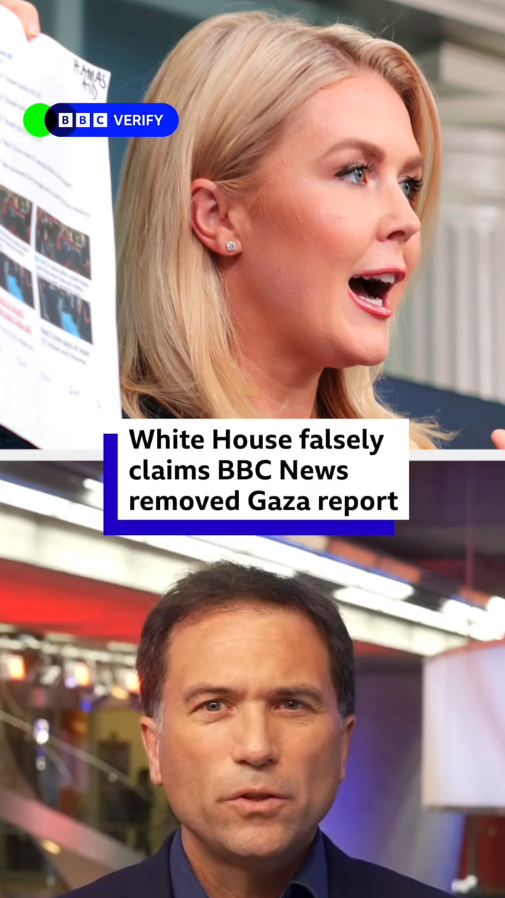
The British Broadcasting Corporation (BBC), one of the world’s most established and influential public broadcasters, has pushed back firmly against criticism from the White House over its reporting on the ongoing war in Gaza. The rebuttal marks a rare transatlantic clash between two major institutions — the U.S. executive branch and the UK’s national broadcaster — and highlights the increasingly sensitive terrain of media coverage in war zones, especially amid mounting global concern over Israel’s military actions in the besieged Palestinian territory.
The controversy began when a senior White House spokesperson accused the BBC of misrepresenting the U.S. government’s position on the Gaza conflict, implying that the broadcaster had published “misleading” or “incomplete” information regarding Washington’s stance on Israeli airstrikes and the humanitarian situation. While the specific reporting in question was not immediately identified by U.S. officials, the criticism appeared to stem from the BBC’s coverage of recent White House press briefings and statements related to ceasefire negotiations and arms transfers to Israel.
In a sharply worded response, the BBC stood by its reporting.
“We categorically reject the suggestion that our coverage of the conflict in Gaza has been misleading or inaccurate,” a BBC spokesperson said. “Our journalism adheres to the highest editorial standards. We have reported developments from all sides with fairness, balance, and in-depth analysis, drawing on verified sources and correspondents on the ground.”
The BBC also emphasized its role as an impartial news organization and rejected what it described as an attempt to “politicize” its reporting. The statement further noted that the broadcaster had consistently covered official U.S. positions, including President Joe Biden’s statements supporting Israel’s right to self-defense, as well as growing internal dissent within the Democratic Party regarding the scale of civilian casualties in Gaza.
A broader battle over narratives
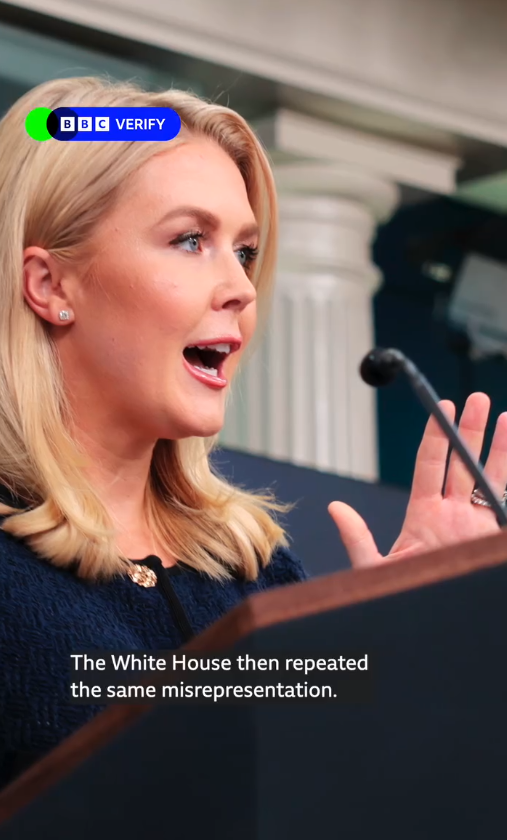
The standoff comes amid escalating scrutiny over media portrayals of the Gaza war, which began in October 2023 following Hamas’s deadly attack inside Israel. In response, Israel launched a sustained military campaign in Gaza, resulting in the deaths of tens of thousands of Palestinians — many of them civilians, according to the United Nations and international human rights organizations. The humanitarian crisis has drawn condemnation from NGOs, calls for restraint from Western allies, and accusations of war crimes from legal experts.
The BBC, with its extensive global reach and legacy of foreign reporting, has maintained correspondents on both sides of the conflict, including reporters in Tel Aviv, Jerusalem, and within Gaza — where journalists risk their lives to document the human cost of war. Its coverage has included stories on Israeli hostages, Palestinian civilian deaths, aid blockades, ceasefire proposals, and international diplomatic responses.
Yet like other major outlets, the BBC has faced accusations of bias — from all sides. While pro-Israel groups have criticized the broadcaster for focusing on Palestinian suffering and failing to contextualize Hamas’s actions, pro-Palestinian advocates have accused the BBC of downplaying Israeli aggression and using passive language to describe mass casualties. The organization’s editors have repeatedly stressed their commitment to accuracy and neutrality.
Political implications in Washington
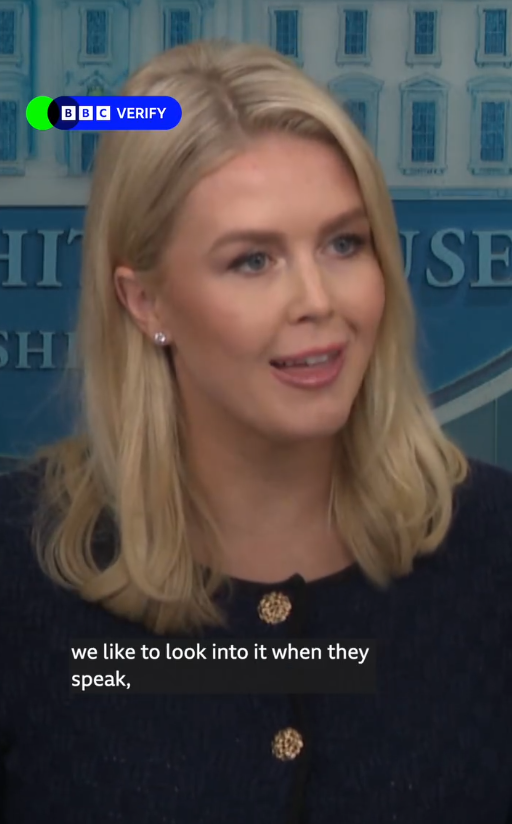
The White House’s criticism of the BBC appears to reflect broader frustrations within the Biden administration about international perceptions of U.S. support for Israel. Despite growing domestic pressure — including from progressive lawmakers, young voters, and human rights advocates — the administration has largely maintained military aid and diplomatic backing for the Netanyahu government, even as civilian casualties have mounted.
Recently, tensions within the administration have surfaced publicly, with reports of internal debates over arms sales, potential war crimes liability, and whether to condition aid on Israel’s adherence to international law. The BBC has reported extensively on these divisions, including anonymous briefings and official press statements — coverage that may have irked the White House, which is balancing foreign policy strategy with domestic political optics ahead of the 2024 presidential election.
While governments often criticize media coverage, public rebukes of the BBC by allied nations — especially by a close partner like the United States — are relatively rare. Analysts have noted that the White House’s remarks may also be aimed at shaping international narratives, especially as global opinion appears to shift away from unconditional support for Israel’s military actions.
A signal to global media?
Media experts warn that attempts to undermine or discredit established journalism in times of war are dangerous and erode public trust.
“When powerful governments try to paint critical journalism as disinformation, it risks chilling independent reporting,” said Dr. Aisha Malik, a professor of media ethics at the University of Oxford. “The BBC has a duty to report facts, even when those facts are politically inconvenient. This is exactly what journalism is supposed to do.”
The BBC’s defense of its reporting has been welcomed by press freedom organizations, including Reporters Without Borders and the Committee to Protect Journalists, both of which have highlighted the growing pressure on journalists covering the Gaza conflict. More than 100 journalists have been killed since the war began — making it one of the deadliest conflicts for media workers in modern history.
The role of trust in an age of misinformation
In an era where misinformation spreads rapidly online and partisan narratives dominate discourse, the role of trusted, independent news organizations is more critical than ever. The BBC’s willingness to push back against political criticism signals a broader struggle over the power to define reality during times of crisis.
While disagreements between political leaders and journalists are nothing new, the stakes in Gaza — where lives hang in the balance and the world is watching — make this particular dispute more than just a war of words.
It is, at its core, about who controls the story.
And as the BBC has made clear, it will not allow that story to be written solely by those in power.
